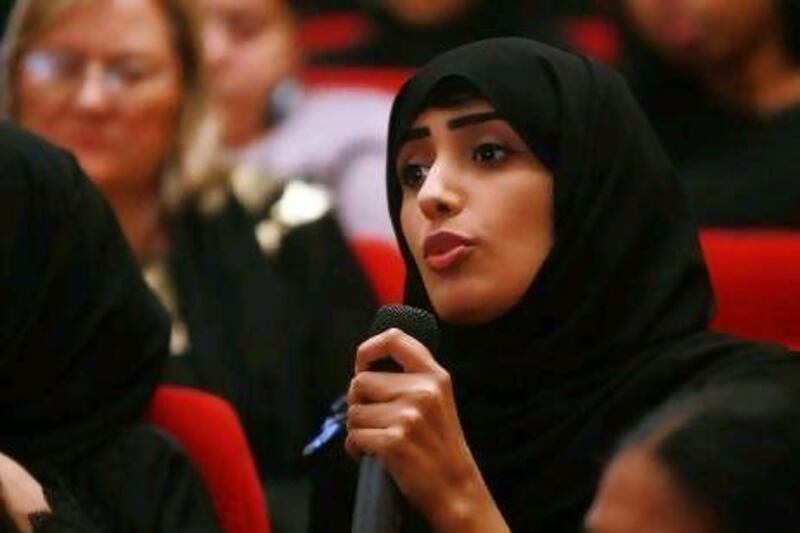MADINAT ZAYED // More than 150 residents from the area closest to the planned Braka power plant gathered last night for the first of a series of public forums held by the nuclear regulator.
Experts from the Federal Authority for Nuclear Regulation (Fanr) fielded questions on safety and environmental impacts at the Ministry of Culture, Youth and Community Development Theatre in Madinat Zayed.
"With the nuclear plant cooling, how will this effect the water in the nearby Shuweihat desalination plant?" asked Saleh Al Mazrooi, an employee from Al Ghayathi Electricity Authority.
"Also, what are the environmental impacts on marine life?"
Dr Maha Aziz, the manager of nuclear facilities at Fanr, said studies had been conducted to ensure the plant would not affect their water supply.
"We have conducted our assessment and can establish that there will be no effects on the desalinated water used at the Shuweihat plant because it will be approximately 40 kilometres from the site," Dr Aziz said.
"As for the marine environmental effects, the Emirates Nuclear Energy Company [Enec] is due to present its study on that and accordingly we will conduct our own independent confirmatory assessment."
Audience members asked if Fanr had tested the current levels of radiation in the country and Braka, highlighting concerns of industrial radiation levels in the UAE.
"The Emirates Nuclear Energy Company has already conducted such a study," said Dr Aziz.
Dr William Travers, the director general of Fanr, said the authority was aware of a number of studies across the UAE.
"Concerning Braka, Enec will be conducting their checks for radiation levels as well, as we will be our own independent checks," Dr Travers said.
The question of emergency responsewas raised by a young woman in the audience.
"Knowing that the first plant will be ready by 2017, how prepared are our hospitals, schools and public in the case of a radiation leak?" she asked.
Dr Travers said the 2017 date was not set in stone.
"This is the date set by the company," he said. "We are not committed to this date as we have to perform our task and, if all goes according to the rules set, it may be then.
"As for the emergency planning, it is an issue that we have tackled with NCEMA [National Crisis and Emergency Management Authority], and the Western Region government, schools, hospitals and the public have to be prepared, and we are tackling this with the local partners here."
Salem Al Qubaisi, the director of nuclear security, said Fanr not only regulated nuclear sites but all uses of radioactive materials in the country.
"Last year we received over 600 requests from government and private firms for radioactive material licenses," Mr Al Qubaisi said.
"We have granted 450 licences, which involved 63 per cent for medical use and 37 per cent for industrial uses."
The audience was shown a video explaining the details and reasons behind the nuclear programme.
"We have drawn from world experience and developed a UAE nuclear programme that has been rated as a model that other nations want to follow," Dr Travers said.
On the sidelines of the forum, he said more public meetings would be held across the UAE.
"We decided to start in the Western Region because it is the region most concerned," Dr Travers said.
"I don't know where the next forums will be, but we will certainly have one in Abu Dhabi."
Although Fanr office is based in Abu Dhabi city, he said there were plans for a Fanr office at the Braka site.
"We will have an office set up in Braka from which we will conduct daily inspections and receive public inquiries," Dr Travers said.
amustafa@thenational.ae
Nuclear future for Abu Dhabi explained
Regulator holds first town hall meeting, fields questions on environment and security from those who will live closest to power plant.

Editor's picks
More from the national





